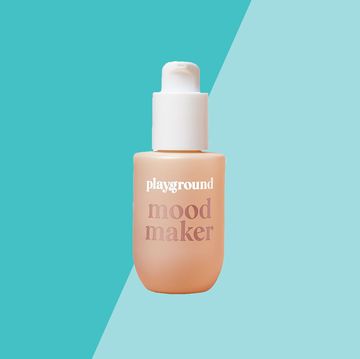Every nourishing marriage includes a healthy dose of conflict. You connect on every level—values, raising (or not raising) children, work-life balance—but if you leave every squabble feeling like nothing was really accomplished, you could be on opposite spectrums of an often overlooked component of our psychologies: attachment style, according to a recent study published in the Journal of Personality and Social Psychology.
How you behave within close relationships, develop and maintain emotional bonds with romantic partners, and support your partner in stressful situations is determined by your attachment style— your own unique levels of avoidance and anxiety.
You can probably tell what a less-than-ideal combination of attachment styles can do for your relationship, but it also affects your stress levels when a conflict arises. Researchers recruited 218 married couples aged 18 to 50 to discuss three areas of disagreement within their relationship in a laboratory setting. Throughout the sessions they completed questionnaires and provided saliva samples so researchers could observe their cortisol levels (a hormone released during stress) before, during, and after the couples had it out over the area of disagreement that the couples deemed most intense (don’t worry, couples were able to end on a high note by discussing the positive aspects of their relationships).
Attachment styles were a solid predictor of physiological distress patterns within each couple:
- Anxious wives with avoidant husbands showed the sharpest highs and lows of stress reactions as well as the most difficulty giving and receiving care from their partners.
- Low-anxiety husbands with high-anxiety wives showed a much weaker cortisol response.
- Couples who were both low in anxiety had significantly slower rates of change in cortisol activity.
- High avoidant wives didn’t feel comforted by their non-anxious husbands, and low-avoidance husbands with low-avoidance wives were less effective overall.
Constant high levels of cortisol keeps your heart and your sympathetic nervous system in constant fight-or-flight mode which, over time, can cause sleep problems, a depressed immune system, and even weight gain. But short of divorce, what can you do? There’s no ideal combination, says researcher Lindsey Beck, PhD, professor in the psychology department at University of Massachusetts Amherst, but knowing your own attachment style can help things along. “Armed with that knowledge, you might be able to work toward being more in tune with your partner’s concerns when he or she is upset.”
Ready to find out? Here are some of the questions from the Experiences in Close Relationships Quiz the participants in the studies took. Agree or disagree with the following statements:
1. I want to get close to my partner, but I keep pulling back.
2. I find that my partner(s) don't want to get as close as I would like.
3. I turn to my partner for many things, including comfort and reassurance.
4. My desire to be very close sometimes scares people away.
If you agree with the odd numbered statements, you’re likely higher in avoidance. You might feel reluctant to give or seek support from your partner, “especially in situations when you need support the most,” says Beck.
If you agree with the even numbered statements, you’re likely higher in anxiety. You tend to have difficulty getting as much support form their partners as they would like, and tend to give support when their partners don’t need it.
Keep in mind, we all fall somewhere on a continuum between these two—and yes, it’s possible to be high in both. But knowing where you fall can help regulate your stress levels in your relationship while feeling supported, understood, and overall more satisfied.
More from Prevention: 10 Little Things Connested Couples Do
Nina Elias is a Syracuse University graduate (Go Orange!) with a love for natural beauty, Broadway, brain health, and the eternal search for the perfect bedroom paint color. She resides in beautiful Bethlehem, PA.












